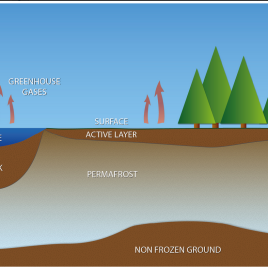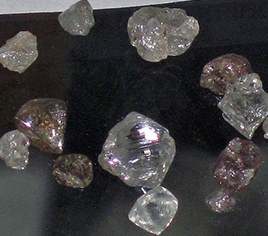A diamond containing a never-before-seen form of calcium silicate (CaSi03) and traces of titanium sheds light on the composition and dynamics of the Earth’s inner workings. Although scientists have theorized that this form of CaSi03 is widespread within the planet, the mineral remains stable at only extremely high pressures—such as those found at depths […]
Tag: Earth science
Increasing risk of coastal erosion from El Niño
Coastal areas around the pacific will be at increased risk of erosion and flooding if a projected increase in extreme El Niño and La Niña events occurs, according to a new study. Researchers found that observed coastal erosion across the Pacific varies closely with El Niño events, independent of changes in sea-level rise. The researchers […]

First global permafrost database launch
The first online database on global permafrost is freely available to the public, serving as an early warning system for decision-makers around the world, as well as providing standardized permafrost measurements for the first time. The database, from the Global Terrestrial Network for Permafrost, has brought together scientists from 25 countries and who have drilled over 1000 […]
Arctic warming linked to cold winters in North America
Warming in certain areas of the Arctic can cause cold winters in North America and Asia according to climate model simulations. Researchers believe the findings may help improve the prediction of winter weather and extreme events in North America and East Asia. The results suggest that atypical warming in the Arctic Barents-Kara Sea precedes severe […]
Measuring Arctic sea ice thickness
By measuring Arctic sea ice thickness, researchers are able to provide more accurate observations about Arctic ice melt. During the autumn of 2013 sea ice grew in thickness around Greenland by 33 per cent over the previous year’s measurement. The ice shrank in 2014, however it remained 25 per cent thicker than 2012 levels. The […]
Comparing current and reduced carbon emissions shows benefit for the ocean 
Researchers compared the effects of two different carbon emissions trajectories and found that reducing emissions to levels required to meet the Copenhagen Accord shows benefits in many areas for the world’s oceans. The research team found that if carbon emissions are mitigated the oceans will be cooler and less acidic. However if carbon emissions maintain […]
